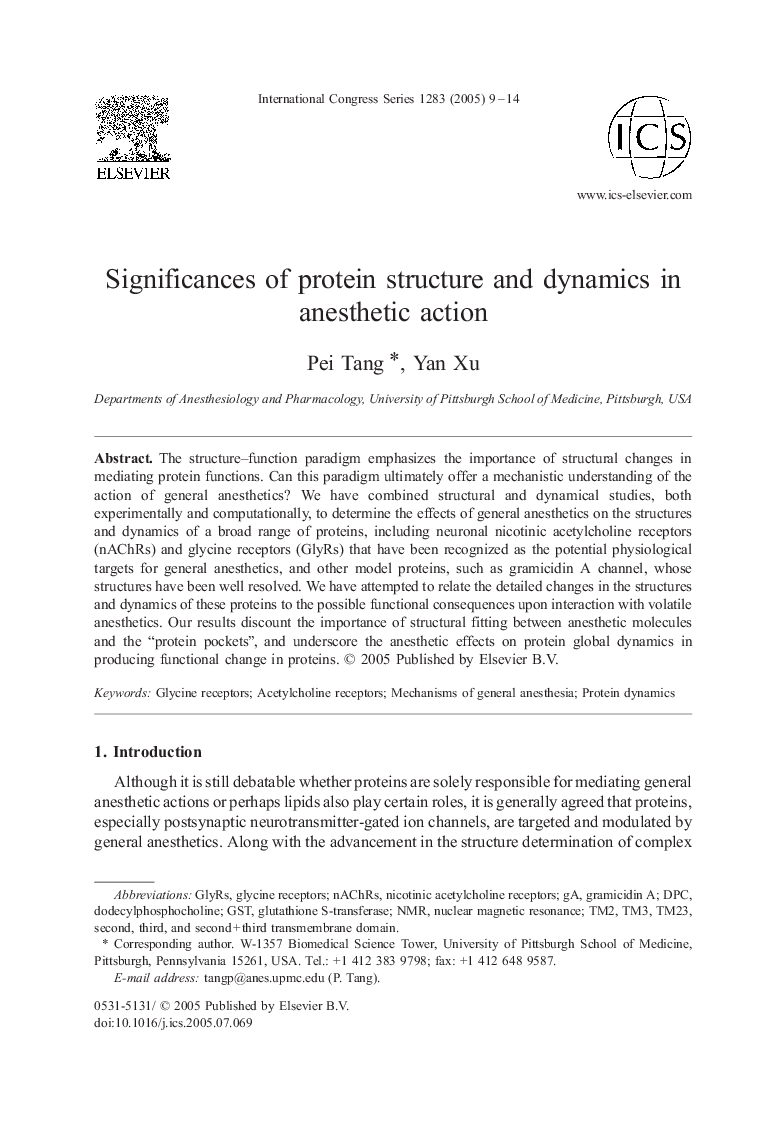| Article ID | Journal | Published Year | Pages | File Type |
|---|---|---|---|---|
| 9021433 | International Congress Series | 2005 | 6 Pages |
Abstract
The structure-function paradigm emphasizes the importance of structural changes in mediating protein functions. Can this paradigm ultimately offer a mechanistic understanding of the action of general anesthetics? We have combined structural and dynamical studies, both experimentally and computationally, to determine the effects of general anesthetics on the structures and dynamics of a broad range of proteins, including neuronal nicotinic acetylcholine receptors (nAChRs) and glycine receptors (GlyRs) that have been recognized as the potential physiological targets for general anesthetics, and other model proteins, such as gramicidin A channel, whose structures have been well resolved. We have attempted to relate the detailed changes in the structures and dynamics of these proteins to the possible functional consequences upon interaction with volatile anesthetics. Our results discount the importance of structural fitting between anesthetic molecules and the “protein pockets”, and underscore the anesthetic effects on protein global dynamics in producing functional change in proteins.
Keywords
Related Topics
Life Sciences
Biochemistry, Genetics and Molecular Biology
Molecular Biology
Authors
Pei Tang, Yan Xu,
